Publications
Search publications
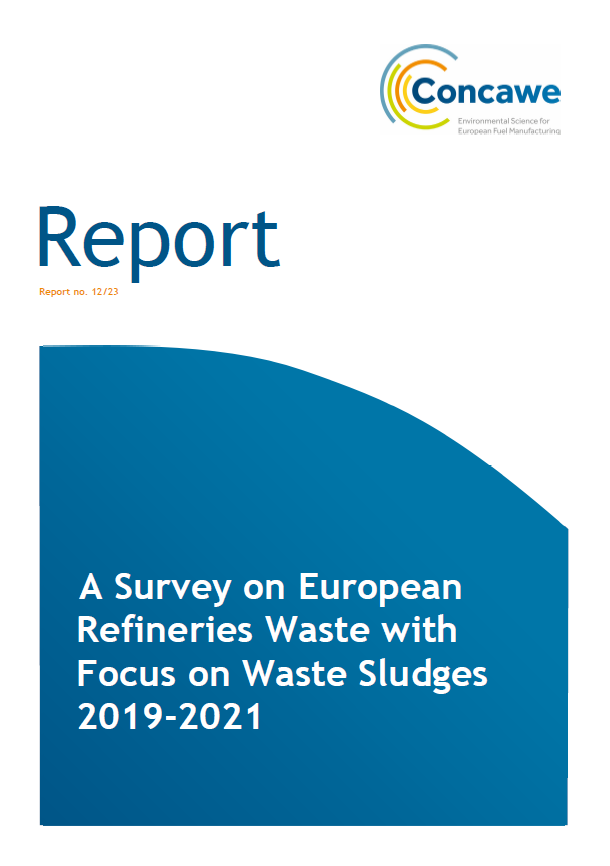
December 15, 2023
A Survey on European Refineries Waste with Focus on Waste Sludges 2019-2021
Report no. 12/23: This report provides a statistical analysis of waste production by Concawe member company refineries in the years 2019, 2020 and 2021, based on survey data returned from 68 member co...
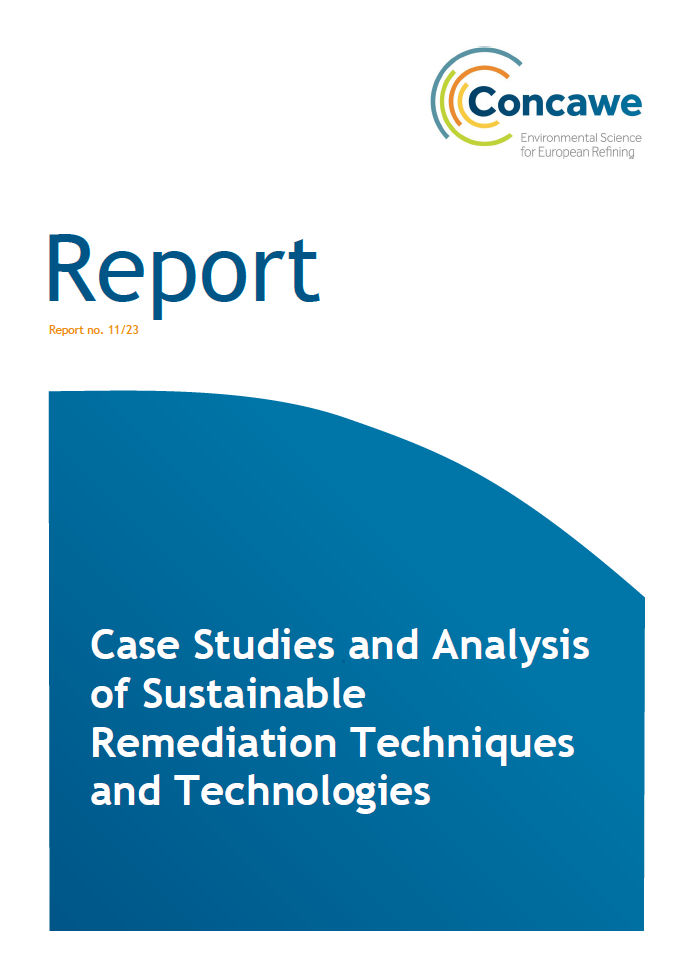
November 20, 2023
Case Studies and Analysis of Sustainable Remediation Techniques and Technologies
Report no. 11/23: The concept of sustainable remediation has become well established in the remediation industry and its application has spread around the world. However, there is a recognised gap in...
November 10, 2023
Hazard classification and labelling of petroleum substances in the European Economic Area – 2023
Report no. 9/23:
This report updates Concawe’s classification and labelling recommendations Report No. 1/22 to address latest updates to Concawe dossiers and changes to CLP regulation.
Further...
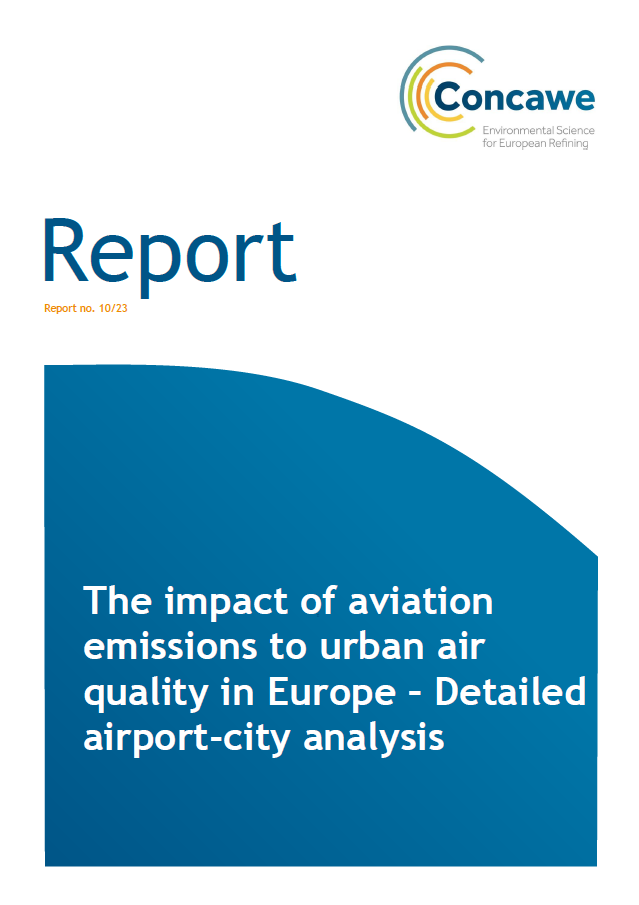
November 8, 2023
The impact of aviation emissions to urban air quality in Europe – Detailed airport-city analysis
Report no. 10/23:
Aviation causes emissions of NOx, SO2 and PM that have a negative impact on air quality. To investigate the extent of this impact, simulations with the chemical transport model (C...
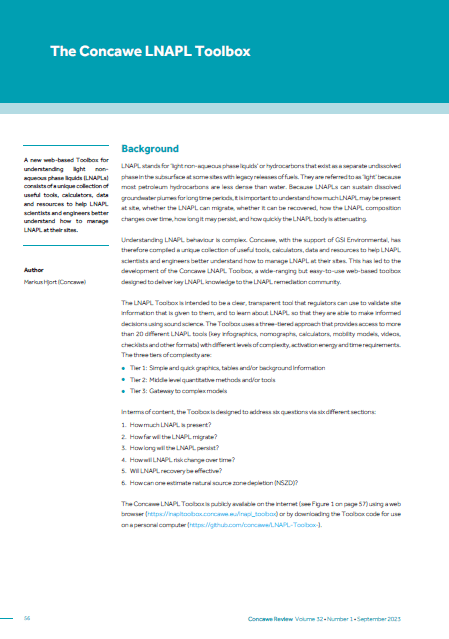
September 5, 2023
The Concawe LNAPL Toolbox
The Concawe LNAPL Toolbox is a web-based tool that provides essential information to the LNAPL remediation community. LNAPL, or light non-aqueous phase liquids, are typically historic hydrocarbon rele...
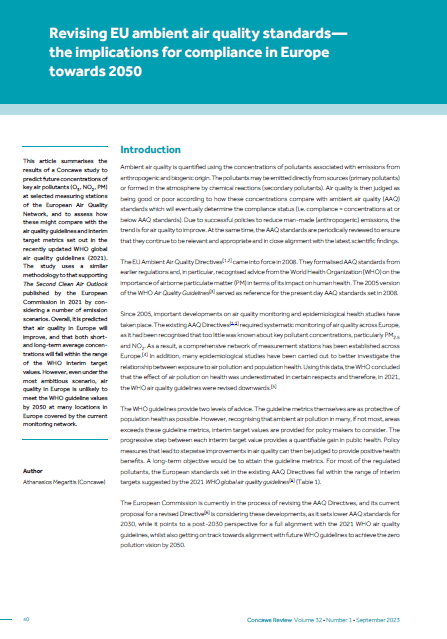
September 5, 2023
Revising EU ambient air quality standards—the implications for compliance in Europe towards 2050
This article presents the results of a modelling study carried out to examine how concentrations of key air pollutants (i.e. nitrogen dioxide (NO2), particulate matter (PM) and ozone (O3)) would vary...
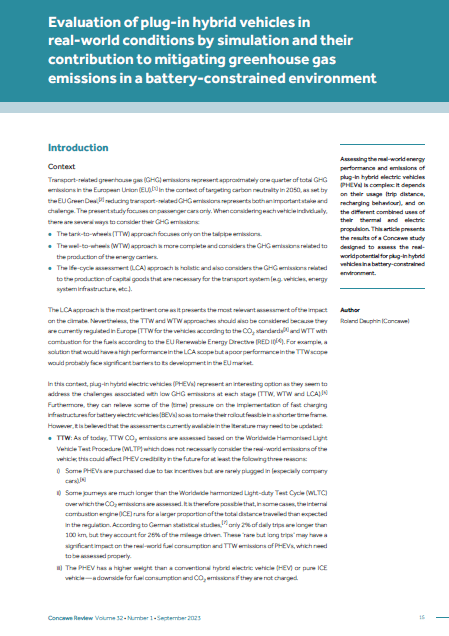
September 5, 2023
Evaluation of plug-in hybrid vehicles in real-world conditions by simulation and their contribution to mitigating greenhouse gas emissions in a battery-constrained environment
Assessing the real-world energy performance and emissions of plug-in hybrid electric vehicles (PHEVs) is complex: it depends on their usage (trip distance, recharging behaviour), which results in diff...
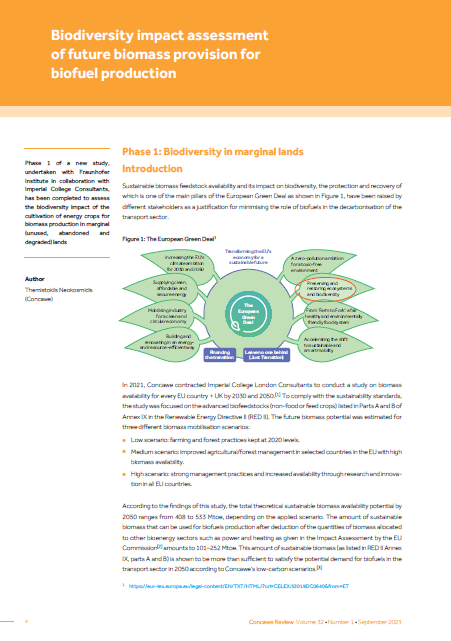
September 5, 2023
Biodiversity impact assessment of future biomass provision for biofuel production
Restoring and preserving biodiversity is widely acknowledged as crucial in the mobilisation of biofeedstocks for biofuels. Following Concawe’s joint study with Imperial College Consultants on the po...
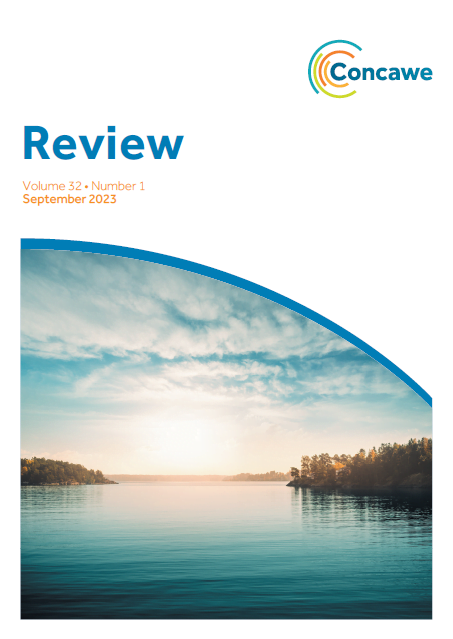
September 5, 2023
Concawe Review 32.1
As the September 2023 edition of the Concawe Review was being finalised, a number of reports discussed the decrease in the biodiversity of the planet. Because the biodiversity contained in different e...
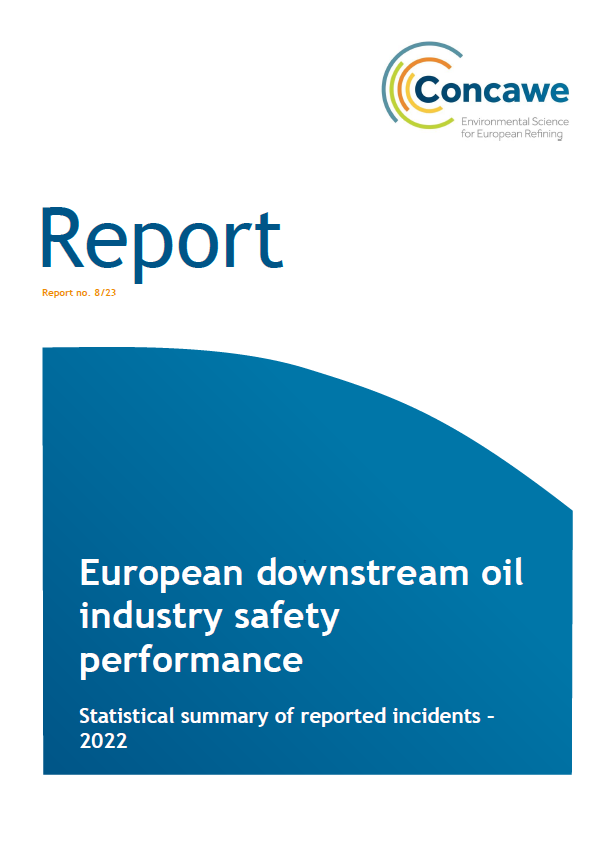
August 23, 2023
European downstream oil industry safety performance
Report no. 8/23: The 2022 annual report on European downstream oil industry safety performance presents work-related personal injuries for the industry’s own employees and contractors and proces...
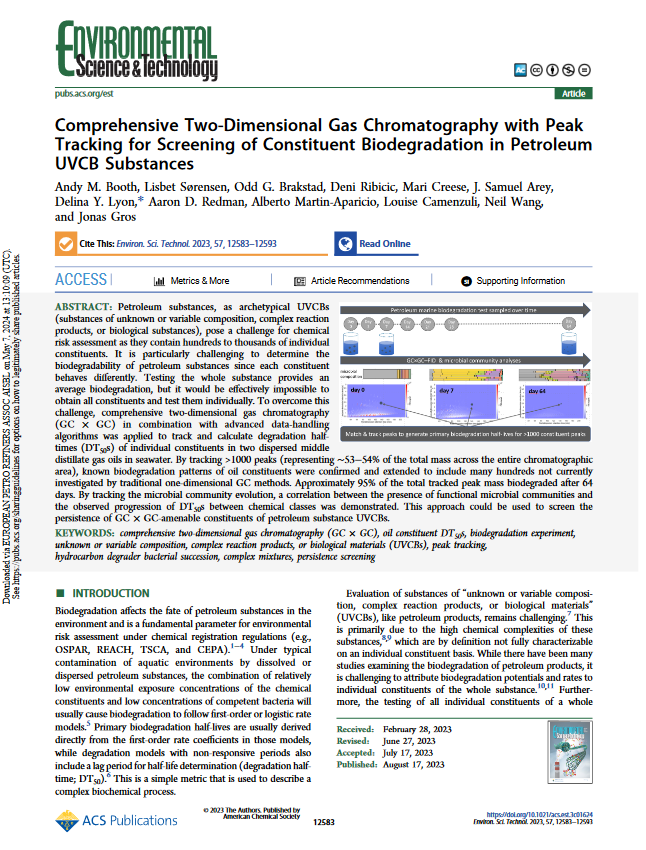
August 17, 2023
Comprehensive two-dimensional gas chromatography with peak tracking for screening of constituent biodegradation in Petroleum UVCB Substances
Petroleum substances, as archetypical UVCBs (substances of unknown or variable composition, complex reaction products, or biological substances), pose a challenge for chemical risk assessment as they...
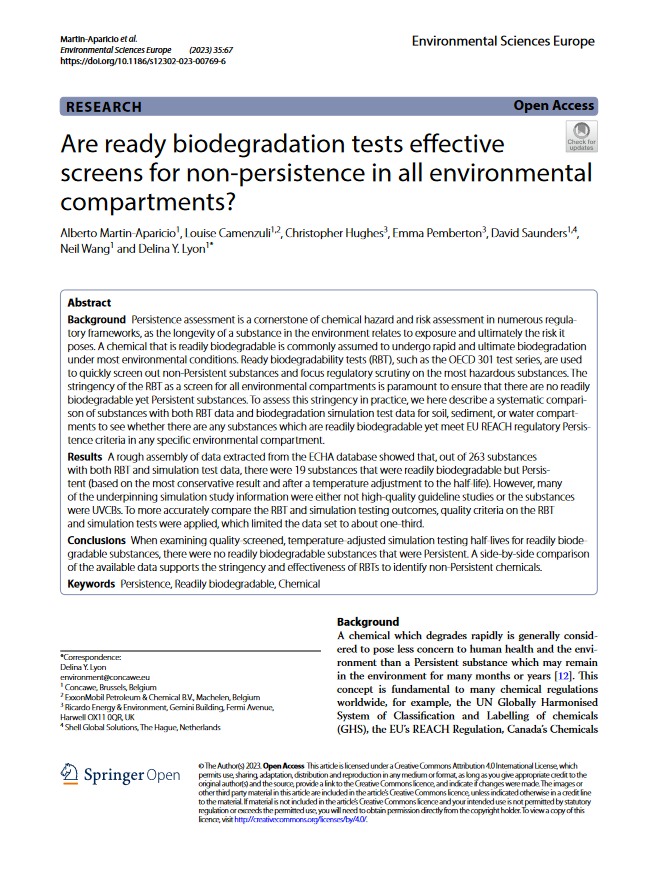
August 16, 2023
Are ready biodegradation tests effective screens for non-persistence in all environmental compartments?
Persistence assessment is a cornerstone of chemical hazard and risk assessment in numerous regulatory frameworks, as the longevity of a substance in the environment relates to exposure and ultimately...
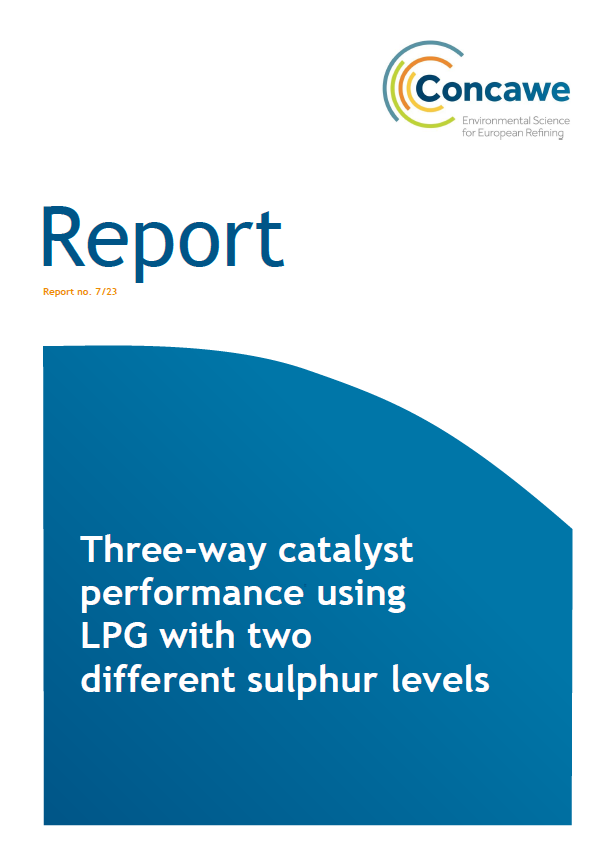
July 31, 2023
Three-way catalyst performance using LPG with two different sulphur levels
Report no. 7/23: An experimental programme was carried out to determine the long-term impact of the level of sulphur present in LPG on the performance of three-way catalytic converters (TWCs) in t...
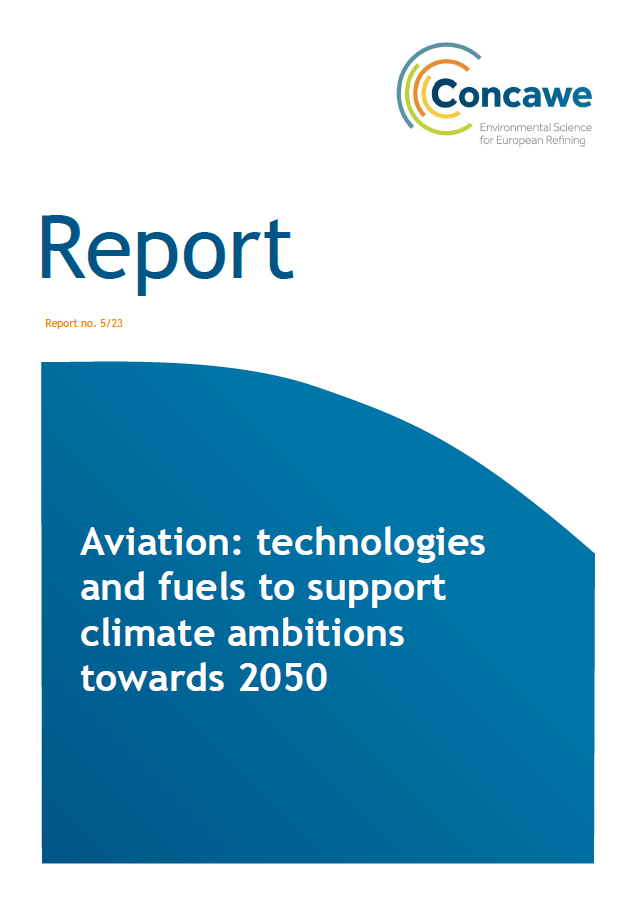
May 17, 2023
Aviation: technologies and fuels to support climate ambitions towards 2050
Report no. 5/23: In 2019, the aviation sector directly employed 11.3 million people worldwide. If also accounting for the associated indirect, induced, and catalytic jobs, aviation enabled a total o...
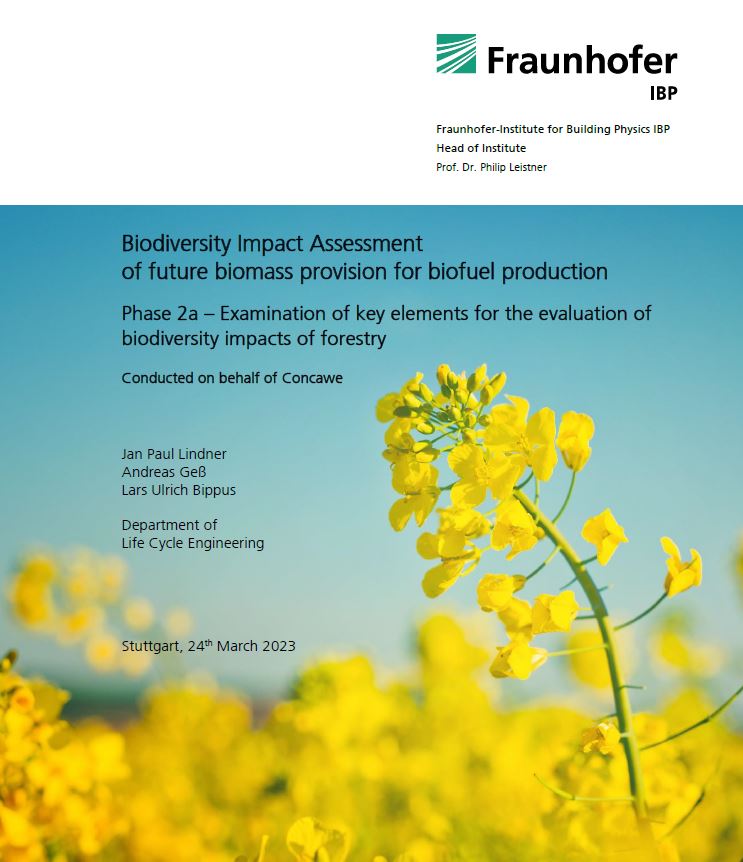
April 27, 2023
Biodiversity Impact Assessment of future biomass provision for biofuel production – Phase 2a
Biodiversity preservation has become a significant topic in Europe due to the increasing demand for more sustainable goods. Concawe, as part of its research activity in biomass availability and mo...
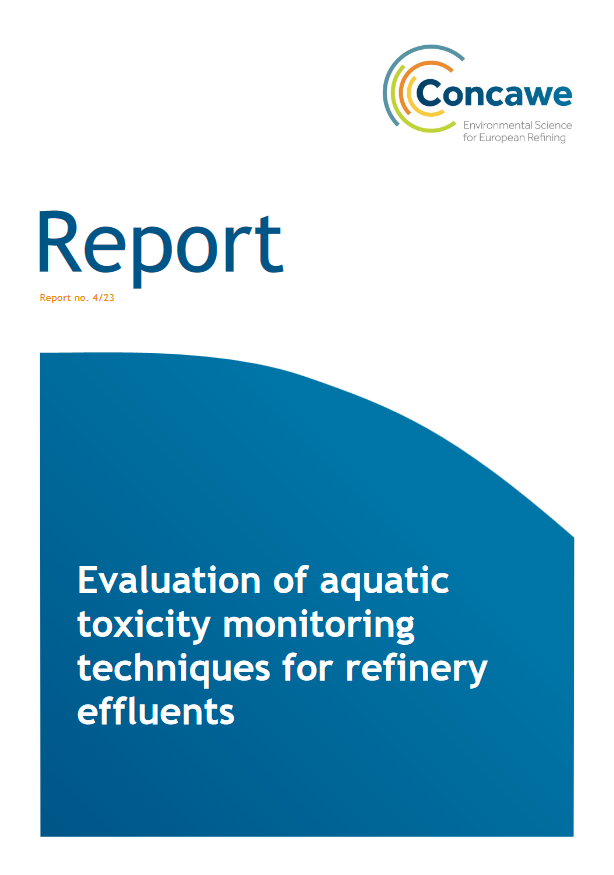
April 22, 2023
Evaluation of aquatic toxicity monitoring techniques for refinery effluents
Report No. 4/23. This report identifies and evaluates a selection of in vivo and in vitro aquatic toxicity testing methods, in order to assess which tests could present an interest if included in a te...
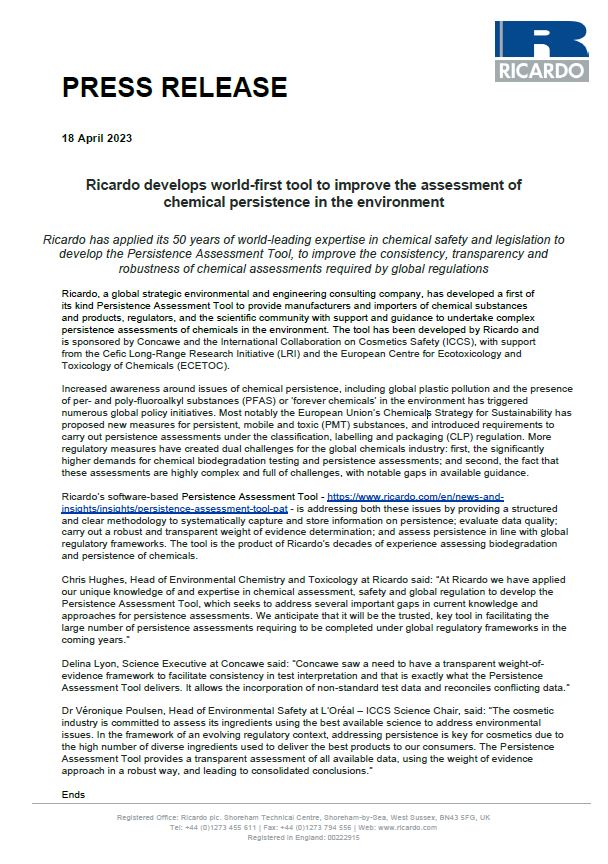
April 19, 2023
Ricardo develops world-first tool to improve the assessment of chemical persistence in the environment
Ricardo, a global strategic environmental and engineering consulting company, has developed a first of its kind Persistence Assessment Tool to provide manufacturers and importers of chemical subst...
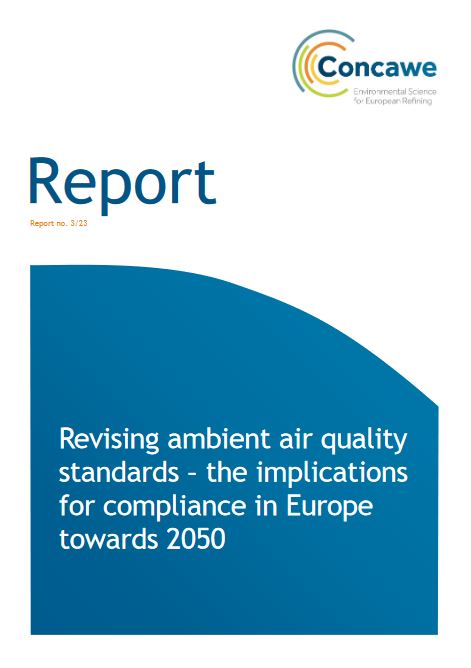
April 13, 2023
Revising ambient air quality standards – the implications for compliance in Europe towards 2050
Report no. 3/23: The European Commission (EC) is currently in the process of revising the EU Ambient Air Quality (AAQ) Directives with the aim to set more strict ambient air quality standards (AAQS) i...
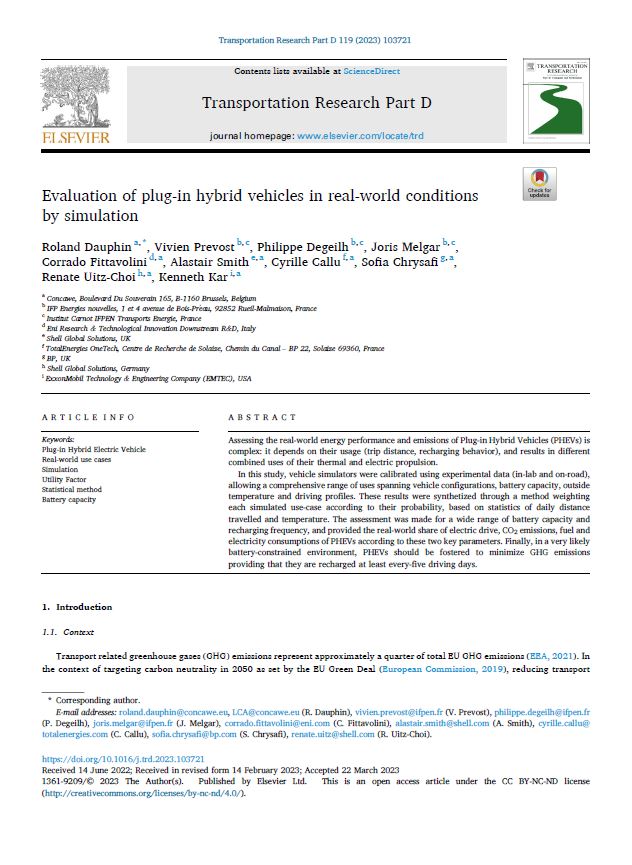
April 11, 2023
Evaluation of plug-in hybrid vehicles in real-world conditions by simulation
Assessing the real-world energy performance and emissions of Plug-in Hybrid Vehicles (PHEVs) is complex: it depends on their usage (trip distance, recharging behavior), and results in different co...
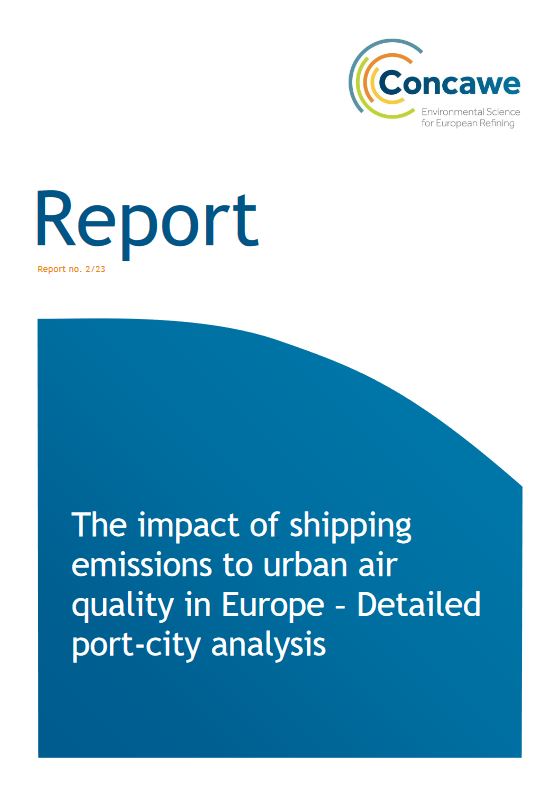
March 30, 2023
The impact of shipping emissions to urban air quality in Europe – Detailed port-city analysis
Report no. 2/23: The report presents the results from a recent project Concawe conducted with TNO that used modelling to assess the influence of shipping emissions on the air quality in 19 selected Eu...
Subscribe to publications
You can subscribe here to receive notifications about new Concawe publications (Technical Reports and the Concawe Review)